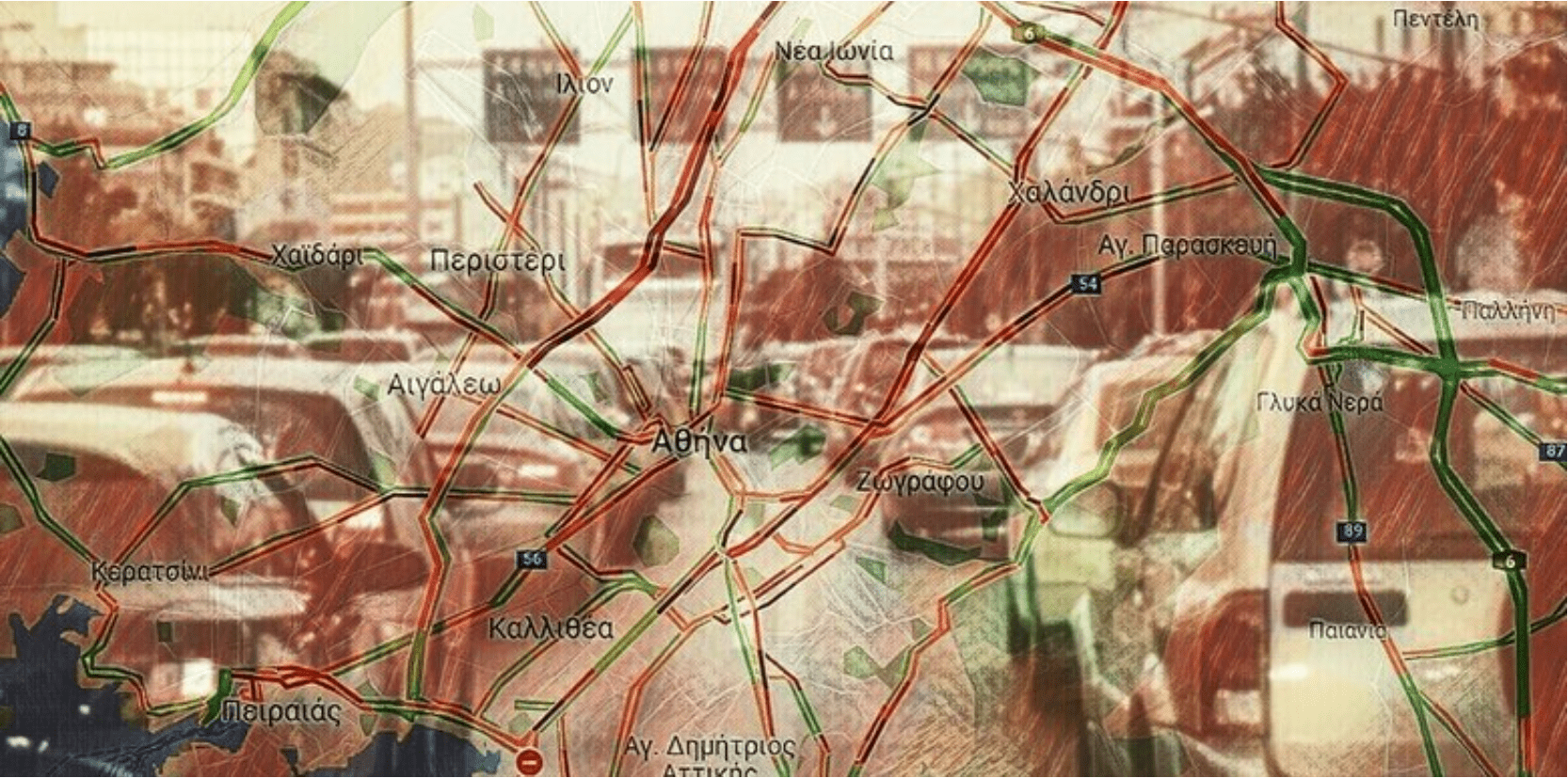Athens is an abandoned city in terms of transport, with no plan, wrong policies, inadequate traffic and parking management and incomplete and underused infrastructure.
If Authorities do not take serious action and citizens do not change their behaviour, the congestion and poor service experienced by Athenians and visitors will be constantly increasing with simultaneous continuous degradation of the environment and quality of life.
- In Athens, the fragmented responsibilities among Ministries of Infrastructure and Transport, Environment and Energy and Citizen Protection, Attica Region and Municipalities (along with their Agencies) has led to a vicious circle of inaction and continuous deterioration of the quality of transport services and the environment. A serious plan with goals, actions, budgets and specific timeline is urgently needed for the integrated and coordinated development and operation of Athens transport system by an effective Metropolitan Authority with centralised planning, implementation, management and accountability responsibilities.
- In Athens, we are wrongly focusing on the traffic congestion of private cars, which will never be improved; only it gets worse. Theory and practice worldwide have shown that traffic always find balance in a status of congestion for most of the day. There are many commuters in Athens and no matter how many roads we build, they will always be full of cars. As in most European cities, only an efficient service provided by reliable Public Transport (PT) can lead to faster, safer and greener commuting. Since time is the main criterion for choosing a transport mode worldwide, the proper operation of several bus-lanes systematically monitored with cameras (including on-board the buses) should be the first concern Road Traffic Police and Athens Public Transport Authority. More and better buses are also needed.
- Car and motorcycle parking has reached uncontrolled levels of poor service, due to the absence of a consistent policies of public space management and policing. International experience shows that the more space we provide to vehicles, the more vehicles will circulate and park. In Transportation Engineering science, the key tool for traffic management is appropriate parking management since fewer parking spaces will attract less traffic. Consequently, on-road parking spaces needs to be significantly reduced, especially in central commercial areas, and attribute them to active travel and quality of life for pedestrians and cyclists. In addition, sufficient small and large off-road parking spaces should be provided for residents and park-and-ride.
- The network of 3 metro lines covers only certain areas of Athens and the development of a complete metro network of 8 lines and 200 stations should be the first priority in transport infrastructure investments. It is necessary to accelerate the development of the next metro lines with rapid tendering and construction procedures, with robust management without the procedural rigidities of the public sector and without contractors delays.
- Finally, the lack of an integrated system of regional road axes (rings) has resulted in the diffusion of through-traffic into central areas of all Municipalities of the Capital of Greece, resulting in poor traffic service and significant deterioration of the quality of life in the neighbourhoods. Athens needs a network of three road rings, the inner, the intermediate and the outer, and gradually the large outer one. The inner and intermediate ring should be mainly implemented through traffic management measures (e.g. green signalling, no stopping and parking signs), while for the outer rings, it is necessary to complete the periphery motorways around the urban complex (South Ymittos Ring Road to Paraliaki, Elefsina-Thiva Axis, Mesogea Motorways, etc.) with large underground sections within the built areas.
Finally, it must be understood that the complexity of transport challenges in big cities, such as Athens, cannot be addressed neither by self-declared experts nor in a piecemeal way, or with patchwork promises and interventions. It needs decade-long policy and vision, effective planning, implementation and monitoring, dedicated people, budgets worthy of the challenge and a participating society. The Science of Transportation Engineering has the solutions, are Authorities and citizens ready for change?
Article in AnatropiNews newspaper in November 2023

